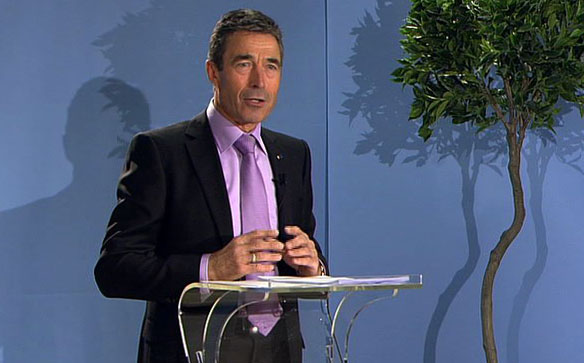Solidarity key to NATO’s success, says Secretary General
On 22 April, Secretary General Anders Fogh Rasmussen gave a keynote speech at the Nordic Hotel Forum in Tallinn, Estonia. The speech, entitled “On Alliance Solidarity in the 21st Century”, was delivered just prior to the start of the NATO Foreign Ministers Meeting in Tallinn. In the past, he said, solidarity allowed NATO to prevail during the Cold War and restore stability in the Balkans, and it continues to be a key feature of the Alliance today.

The Secretary General outlined three ways through which Allies are demonstrating solidarity. The first example is their “unflinching commitment to territorial defence”. But to be successful in defending our territories and populations, he said that Allies need a number of things, including the “right type of military capabilities”, a visible NATO presence across the entire Allied territory, and “a credible nuclear deterrent”.
“Today, threats can originate a long way from our borders, yet still have the potential to hit us at home,” the Secretary General said, moving to the next example. “Responding to those threats far away from our borders is the second area where NATO is delivering solidarity today. And nowhere is this strong, common sense of purpose more visible than in Afghanistan.”
“Every single Ally, as well as many partners, are actively contributing to our UN-mandated mission,” he said. More resources, however, are needed to train Afghan soldiers and police so that Afghans can gradually take over responsibility for the security of their country.
The third example where Allies are demonstrating solidarity is through common funding and collective solutions, said Mr Rasmussen, but it is an area where they “could do even better”.
Increased common funding could allow Allies who have troops or equipment to take part in an operation even if they lack the money to get these resources into theatre, he said. It could also enable some Allies the possibility not to participate in a mission, and allow smaller Allies to acquire and operate military capabilities that are too expensive to purchase individually.
Summing up, the Secretary General stressed the importance of NATO’s new Strategic Concept, which – once agreed by all Allies in November – will guide NATO’s future engagements and should enable it to better face new challenges.
